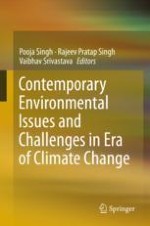2020 | OriginalPaper | Chapter
12. Conceptual Framework to Social Life Cycle Assessment of e-Waste Management: A Case Study in the City of Rio de Janeiro
Authors : Leonardo Mangia Rodrigues, Ana Carolina Maia Angelo, Lino Guimarães Marujo
Published in: Contemporary Environmental Issues and Challenges in Era of Climate Change
Publisher: Springer Singapore
Activate our intelligent search to find suitable subject content or patents.
Select sections of text to find matching patents with Artificial Intelligence. powered by
Select sections of text to find additional relevant content using AI-assisted search. powered by
